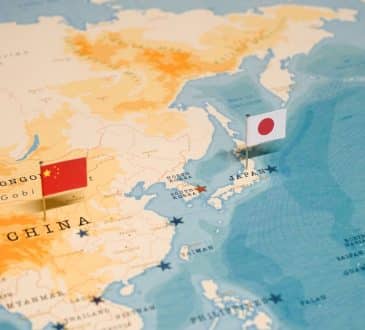Countries Fall Short on Pledge to Protect 30% of Land and Sea for Nature as Deadline Nears

As the deadline to save 30% of land and sea for nature approaches, only 24 countries have submitted formal plans, despite promises made nearly two years ago. A recent analysis revealed that over 80% of countries have not yet presented their strategies to meet the targets outlined in a United Nations agreement aimed at halting the destruction of Earth’s ecosystems.
The agreement struck at a global summit in Montreal, Canada, set ambitious goals to protect 30% of land and sea, reduce environmentally harmful subsidies, and decrease pesticide use. Countries were expected to submit their National Biodiversity Strategies and Action Plans (NBSAPs) ahead of the biodiversity conference Cop16 in Cali, Colombia, which begins this month. However, only 25 countries have done so, leaving 170 nations behind on this crucial commitment.
Historically, the world has never met a single target set under the UN’s biodiversity agreements, and there was significant hope that this decade would mark a turning point. Analysis by Carbon Brief and The Guardian indicates that some of the planet’s most important ecosystems remain unprotected due to the lack of NBSAPs. Only five of the 17 megadiverse countries, which collectively harbor about 70% of global biodiversity, submitted plans: Australia, China, Indonesia, Malaysia, and Mexico. In the Amazon rainforest region, Suriname was the only nation to produce a plan, while no countries in the Congo basin had met the deadline.
Among the G7 nations, only Canada, Italy, France, and Japan managed to submit their biodiversity strategies on time. The UK, though it has submitted a technical document to the UN, is not expected to publish its complete plan until early 2025, citing political changes as the reason for the delay.
Crystal Davis, global director for the Food, Land and Water Program at the World Resources Institute, noted that nature is in crisis, largely due to human exploitation of land and oceans. She stressed the importance of countries taking action at Cop16, urging them to turn the global agreement into meaningful steps toward nature protection and restoration.
Colombia, despite being the host of Cop16, also missed the deadline, though it plans to present its strategy during the summit. Brazil, another key player in biodiversity, acknowledged its delay, citing the extensive scope of its long-term plan, which aims to last until the middle of the century. The UN indicated that other countries might reveal their NBSAPs at the conference, though it remains unclear how many will do so.
Have you read?
Fastest tanks ever built by Russia.
Impact of Titles on Your Executive Career – Negotiating Job Titles and more!
3 Ways Technology Empowers the Hybrid Work Revolution.
5 Effective Strategies to Reduce Criticism and Captivate Your Essay Readers.
CerebrumIQ Reviews the Average IQ for Managers and Executives.
Bring the best of the CEOWORLD magazine's global journalism to audiences in the United States and around the world. - Add CEOWORLD magazine to your Google News feed.
Follow CEOWORLD magazine headlines on: Google News, LinkedIn, Twitter, and Facebook.
Copyright 2025 The CEOWORLD magazine. All rights reserved. This material (and any extract from it) must not be copied, redistributed or placed on any website, without CEOWORLD magazine' prior written consent. For media queries, please contact: info@ceoworld.biz








